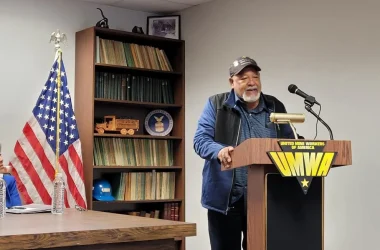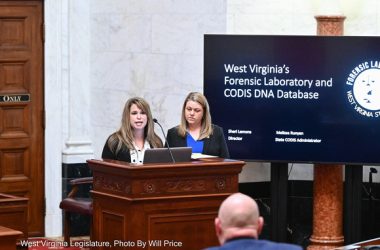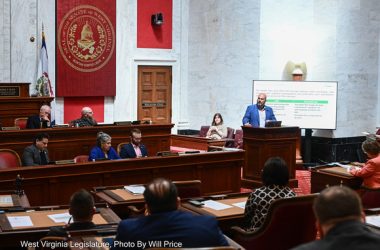By ERIN BECK
Charleston Gazette-Mail
CHARLESTON, W.Va. — A Charleston-based refugee resettlement office will assist in placing 85 refugees in the area during the Oct. 2017- Sept. 2018 fiscal year, according to the director of the group organizing the effort.
The West Virginia Interfaith Refugee Ministry, a group that has been working to bring refugees to West Virginia, plans to open the office of a refugee resettlement agency affiliate on the third floor of St. John’s Episcopal Church in Charleston on Aug. 1, according to Lynn Clarke, director of the group.
Antigone Mehani, who previously served as the employment services manager at another resettlement agency in Louisville, Kentucky, also begins Aug. 1. Clarke anticipates Mehani will hire one part-time employee. The agency is an affiliate of Episcopal Migration Ministries, one of nine national refugee resettlement agencies that work with the federal government and local groups to place refugees. Episcopal Migration Ministries has about 30 offices nationwide. In the ministry’s “resettlement communities,” local organizers assist refugees with finding health care and work, translation and other services.
Mehani will be an employee of the Episcopal Diocese of West Virginia, which will assist with administrative tasks.
The group has raised about $100,000 in pledges, donations and grants, according to Clarke.
The refugees — people who have had to flee their homes because of war, persecution or other violence — will likely come from Syria, Iraq and Afghanistan. Clarke said half will be children.
One week into his term, President Donald Trump, who called for a “Muslim ban” during his campaign, issued an executive order seeking to ban people from Iran, Iraq, Libya, Somalia, Sudan, Syria and Yemen — all Muslim-majority countries — from entering the United States for 90 days and all refugees for 120 days. A revised ban, issued in March, removed Iraq, and set new exceptions, including for those seeking to live or work with family.
In June, the Supreme Court allowed parts of the ban to go into effect for those who lack any “bona fide relationship with any person or entity in the United States.”
Clarke said the refugees likely won’t have ties to the region, so they won’t begin arriving until the ban is no longer in effect. She anticipates arrivals in November.
“I always believed this would happen for Charleston,” she said. “There’s always been concern that things would change, but I don’t remember ever thinking that this office wouldn’t open.”
Mehani, who came to the United States as a refugee from Kosovo, lived in Louisville for 18 years. She was responsible for 900 job placements each year, she said.
“We all know that diversity brings innovation,” she said. “Louisville clearly has benefited from refugees. I wanted to bring that to Charleston. I couldn’t think of a better place than Charleston, especially since people have opened their doors and their hearts to giving refugees a home — a second home.”
In May 2016, an employee and consultant for Episcopal Migration Ministries visited Charleston to determine if the city could accommodate refugees and reported they found only support from essential stakeholders. In October 2016, they submitted an application for a resettlement agency to place 100 refugees in Charleston in the first year. The U.S. Department of State notified the group in Dec. 2016 that its application for a resettlement office had been approved. Episcopal Migration Ministries has submitted only one other application for a resettlement community, for Wichita, Kansas, to the State Department in the past five years, and it was also approved.
The U.N. High Commissioner for Refugees reported in June 2017 that an unprecedented 65.6 million people around the world were displaced from their homes, including 22.5 million refugees. About 55 percent of the refugees came from South Sudan, Afghanistan and Syria. Of those refugees, half were children.
Catholic Charities also helps place refugees in West Virginia. From Oct. 1, 2016 to June 30, 2017, a total of .03 percent of arrivals in the United States were in West Virginia, according to the Refugee Processing Center. That includes 13 people.
Wednesday, the Supreme Court blocked an order by a district judge that would have allowed refugees working with resettlement agencies in the United States to enter the country, despite the travel ban. The Supreme Court is scheduled to hear arguments on the ban in October.
See more from the Charleston Gazette-Mail



